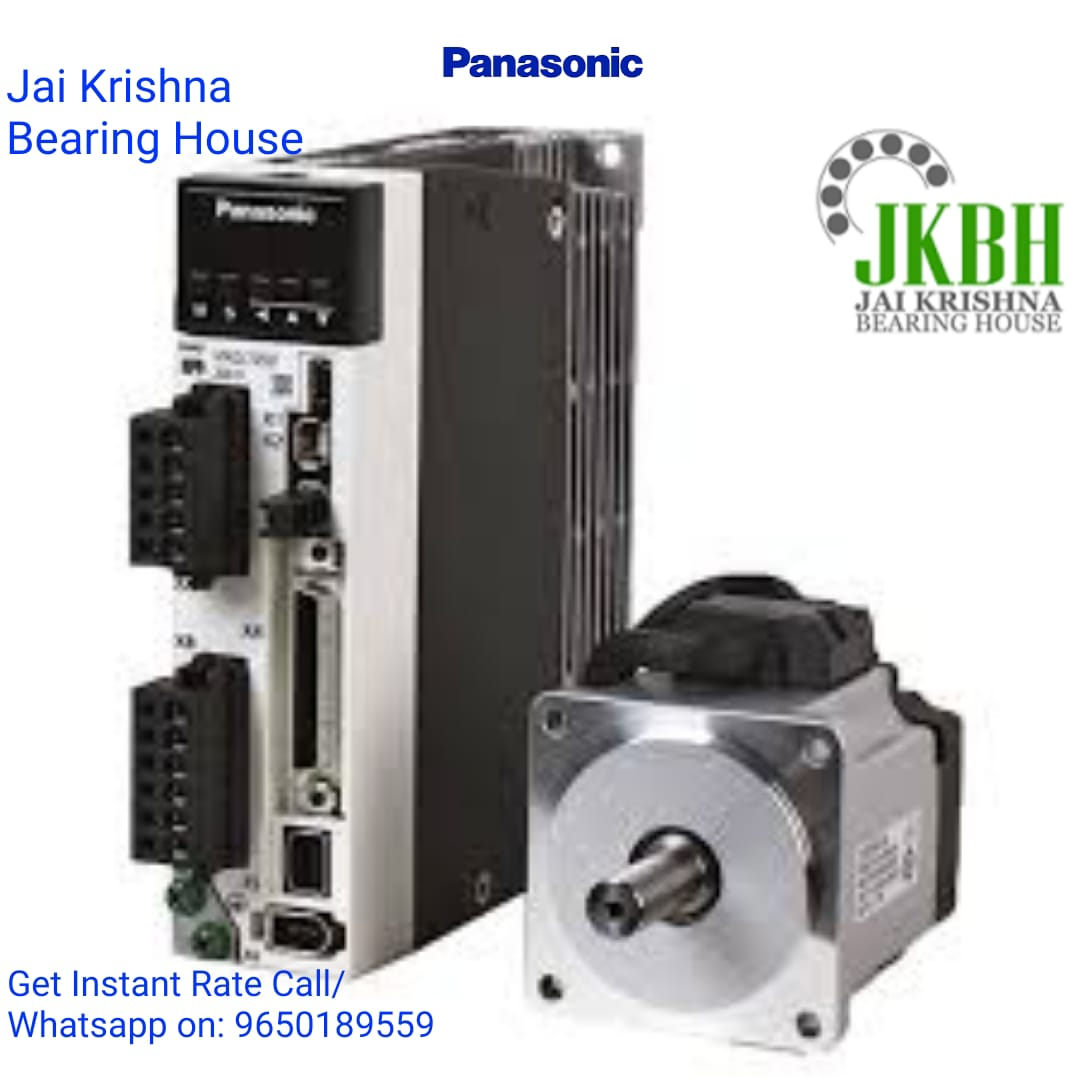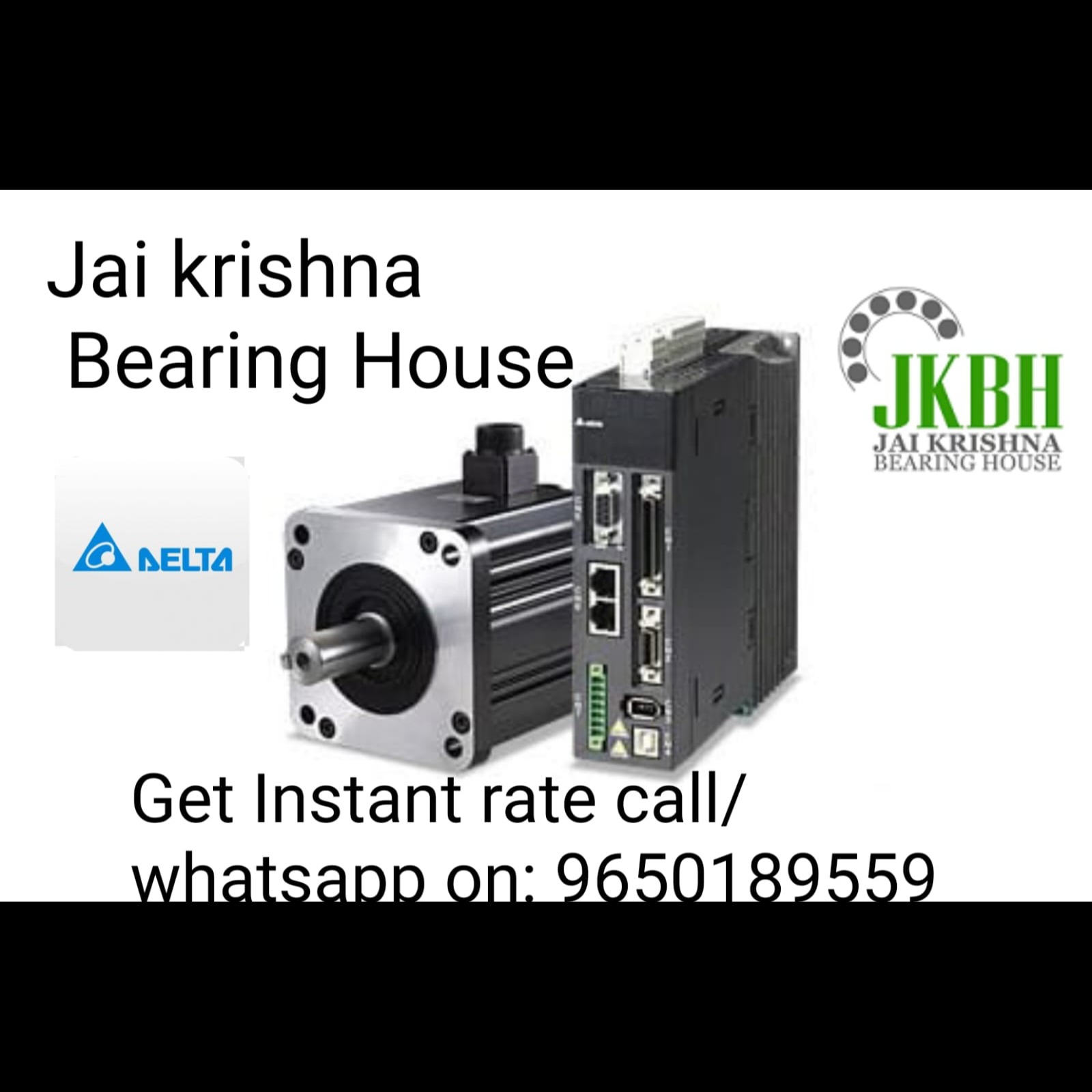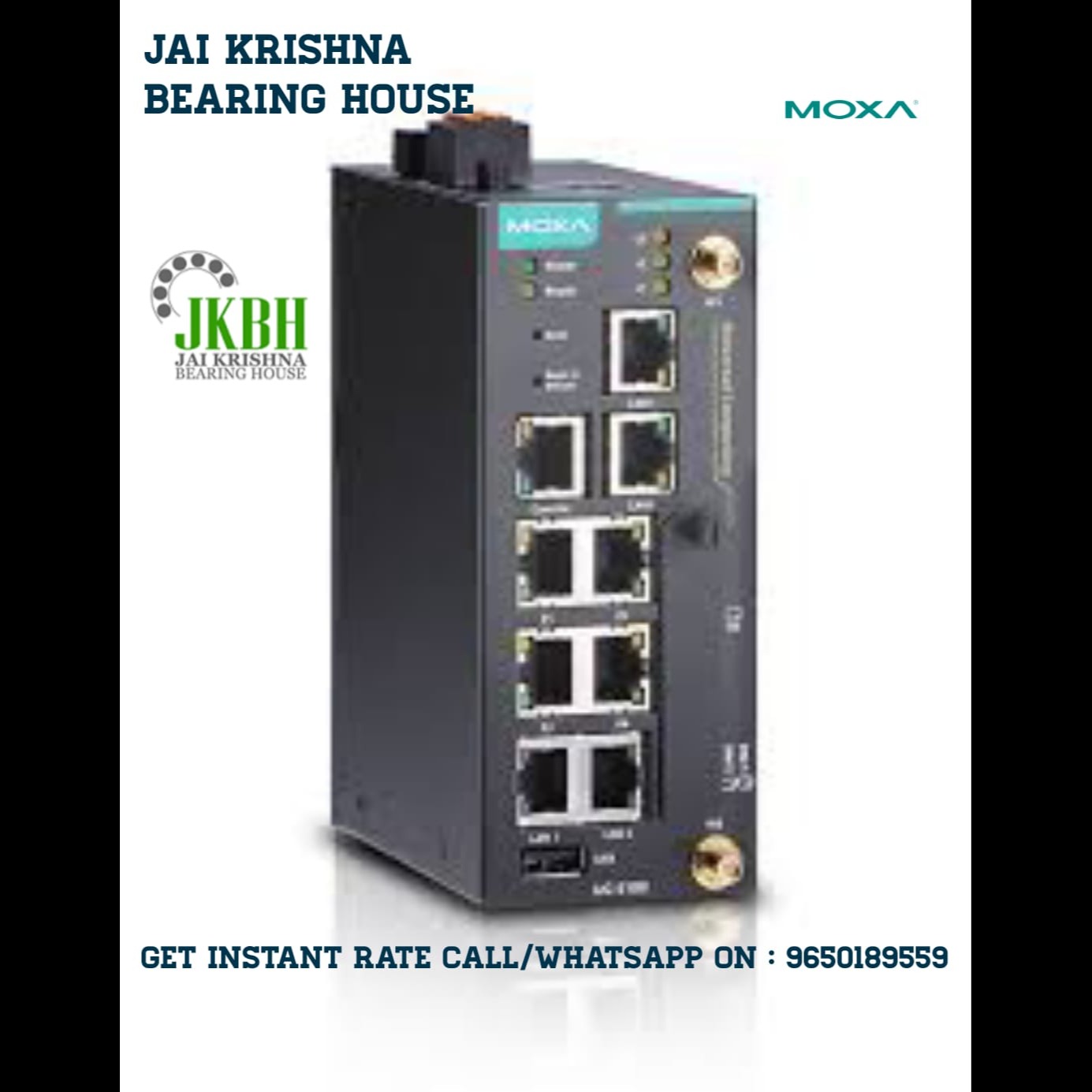
Panasonic AC servo motors are high-performance motors commonly used in various automation, robotics, CNC machinery, and other industrial applications. These motors are part of Panasonic's extensive range of motion control solutions, and they offer precision, reliability, and energy efficiency.
Key Features of Panasonic AC Servo Motors:
AC Servo Motor Type:
Synchronous Motors: Panasonic AC servo motors are typically synchronous motors, meaning the motor’s rotor rotates at a speed that is proportional to the frequency of the supply current. This allows for high precision and speed control.
Precision and Accuracy:
The motors provide high accuracy in terms of position, speed, and torque control. This is achieved by integrating the motor with an encoder (or resolver) that continuously monitors the motor’s position and feedback is sent to the controller for precise adjustments.
High Efficiency:
Panasonic servo motors are designed to provide high torque-to-weight ratios, reducing energy consumption and improving overall system efficiency. This makes them particularly suitable for systems where energy savings are a priority.
Feedback Systems:
The motors usually come with high-resolution encoders that allow for accurate feedback. Panasonic often uses multi-turn absolute encoders, which provide precise feedback without requiring a homing procedure after power loss.
Compact Design:
These motors are designed to be compact, making them ideal for systems where space is a constraint. They are engineered to deliver high performance even in smaller, tighter spaces.
Integrated Control:
Many Panasonic servo motors can be paired with an integrated drive system, which reduces the complexity of the setup and helps in saving space. This combination simplifies wiring and reduces the number of components needed in a control system.
High Torque and High Speed:
Panasonic’s servo motors are designed to provide high torque at a wide range of speeds. This is essential for applications requiring high acceleration, rapid deceleration, and precise motion control, such as in robotics and CNC machines.
Noise Reduction:
The design of the motors reduces electromagnetic interference (EMI) and mechanical vibrations, leading to quieter operation, which is especially important in sensitive environments or when the system needs to maintain high precision without disruptions.
Advanced Control Features:
Panasonic AC servo motors often come with advanced control algorithms, including PID control, which ensures smooth, stable, and efficient operation. Some models even feature automatic tuning, which adjusts parameters for optimal performance depending on the load and environment.
Durability and Longevity:
These motors are built to handle continuous operation in demanding environments. They are designed to operate efficiently even under heavy load conditions, with a focus on durability and long life expectancy.
Types of Panasonic AC Servo Motors:
MINAS A5 Series:
These are high-performance motors with a wide power range. They offer high torque density, precision, and excellent thermal performance. They are typically used in industrial machinery, robotics, and factory automation.
MINAS B5 Series:
These are compact motors designed for more specific applications requiring low inertia and high torque-to-volume ratios. These are often used in systems requiring high dynamic performance.
MINAS L5 Series:
These are advanced, low-cost, and highly efficient motors designed for general-purpose applications. They are ideal for applications that require cost-effective solutions without compromising performance.
Applications of Panasonic AC Servo Motors:
Industrial Automation:
Panasonic AC servo motors are widely used in factory automation systems, including conveyors, assembly lines, packaging machinery, and more.
Robotics:
These motors are ideal for robotic arms, autonomous machines, and automated guided vehicles (AGVs) because of their precise motion control.
CNC Machines:
AC servo motors offer the high torque and precision needed for milling, lathe, and other CNC machining operations.
Printing Machines:
The precision control and reliability of Panasonic servo motors make them a preferred choice for printing presses.
Elevators and Escalators:
Their durability and smooth motion make them suitable for use in elevator systems, including high-speed lifts.
Medical Equipment:
Some medical equipment requires precise and controlled motion, where Panasonic servo motors provide the necessary accuracy for applications like imaging systems and laboratory equipment.
Textile Machinery:
In textile manufacturing, these motors provide the necessary precision for weaving, knitting, and spinning machines.



